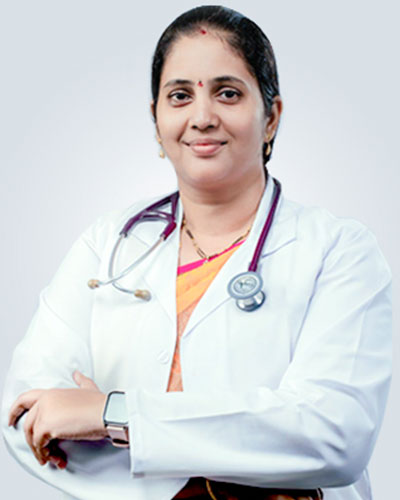Obstetrics and gynaecology
Understanding obstetrics:
Obstetrics is a specialized field of medicine focused on pregnancy, childbirth, and the postpartum period. It encompasses the care of women during pregnancy, addressing both the mother's and the baby's health throughout this crucial time. Obstetricians are medical doctors who are trained to manage various aspects of pregnancy, including prenatal care, labor, delivery, and postnatal care. They perform routine check-ups, genetic screening, and ultrasounds, and they provide education on childbirth and parenting. Obstetrics also involves managing complications that may arise during pregnancy or delivery, such as gestational diabetes, preeclampsia, or preterm labor. In addition, obstetricians may collaborate with other healthcare professionals, such as midwives and pediatricians, to ensure comprehensive care. The field also involves critical decision-making regarding interventions such as cesarean sections and the use of medications during labor. Overall, obstetrics is a dynamic discipline that not only focuses on the physical health of mothers and babies but also addresses emotional support and education, aiming to ensure safe and healthy pregnancies and births.
Understanding gynecology:

Gynecology is a branch of medicine that focuses on the female reproductive system, addressing a wide range of health issues related to women. It encompasses the diagnosis and treatment of conditions affecting the ovaries, fallopian tubes, uterus, vagina, and breasts. Gynecologists provide essential healthcare services, including routine check-ups, screenings, and preventive care, as well as managing menstrual disorders, infertility, pregnancy complications, sexually transmitted infections (STIs), and various gynecological cancers. In addition to clinical practice, gynecologists also play a crucial role in educating women about reproductive health, family planning, and menopause management. The field often intersects with obstetrics, which deals with the care of women during pregnancy and childbirth. Advances in technology and medical research continue to enhance the effectiveness of gynecological treatments, including minimally invasive surgical techniques and personalized medicine. As women face unique health challenges, gynecology aims to empower women through informed choices, promoting overall health and well-being throughout their lives. Regular visits to a gynecologist are vital for early detection of potential issues, fostering a proactive approach to women's health. Overall, gynecology is integral to understanding and addressing the complex medical needs of women at various stages of life.
Different disorders commonly seen under gynecology:
- Polycystic Ovary Syndrome (PCOS): A hormonal disorder causing irregular menstrual cycles, excess hair growth, acne, and obesity; characterized by multiple cysts in the ovaries.
- Endometriosis: A condition where tissue similar to the lining inside the uterus grows outside it, leading to severe pain, especially during menstruation, and potentially fertility issues.
- Uterine Fibroids: Noncancerous growths in the uterus that can cause heavy menstrual bleeding, pelvic pain, and complications during pregnancy and labor.
- Pelvic Inflammatory Disease (PID): An infection of the female reproductive organs, often caused by sexually transmitted bacteria, leading to abdominal pain, fever, and potential infertility.
- Amenorrhea: The absence of menstruation, which can be classified as primary (never starting menstruation) or secondary (stopping menstruation for at least three cycles), caused by hormonal imbalances, stress, or medical conditions.
- Menopause Disorders: Issues related to the transition into menopause, including hot flashes, mood changes, and osteoporosis, affecting overall quality of life.
- Cervical Dysplasia: Abnormal cell changes on the cervix, often detected through Pap tests, which can lead to cervical cancer if not monitored and treated properly.
When to consult a OBGYN:
Visiting an ob-gyn is essential for women's health at various stages of life. Ideally, women should schedule their first visit during their teenage years, typically around 13 to 15, to establish a relationship with their provider, discuss menstrual health, and address any questions about sexual health. Routine check-ups should continue annually starting at age 21, regardless of sexual activity, to screen for cervical cancer through Pap tests. Women should also visit their ob-gyn if they experience irregular periods, painful menstrual cycles, or any concerning symptoms like unusual discharge or pelvic pain. For those trying to conceive, a preconception visit is advised to discuss health optimization and prenatal care. Additionally, during pregnancy, regular appointments are crucial for monitoring both maternal and fetal health. Women approaching menopause should consult their ob-gyn to understand what to expect and manage symptoms associated with this transition. Overall, regular visits not only ensure reproductive health but also provide a platform for women to discuss broader health issues, making it vital to maintain consistent communication with an ob-gyn throughout life.

Dr. Sree Ramya Kantipudi
M.B.B.S .,M.S.,(OBGY)
Consultant Obstetrician and Gynecologist
Fertility specialist
Laparoscopic surgeon
Honed with profound communication skills, Good clinical Laboratory practices and with acumen knowledge and experience in surgery.
Skills:
- Proficient knowledge and insight on basic infertility.
- Decisive and sound knowledge on scans.
- Efficient in handling high risk OBG cases independently.
- Proficient in performing abdominal, Vaginal hysterectomies , assisted many
- Laparoscopic hysterectomy and myomectomy surgeries.
Educational background:
- 2012-15 Masters in OBG GYN from GSL Medical College
- 2005-11 Bachelor of Medicine & Bachelor of Surgery (M.B.B.S) (Silver
Medalist)
Dr. NTR University of Health Sciences, Vijayawada, India.
Professional Background:
- 2018-2025 : Consultant in JJ Hospitals, SR NAGAR
- 2017-2018 : Government Service in Kovvur Govt. Hospital. (relieved on 21st March, 2018)
- 2015-2017 : Asst. Professor, Dept. of OBG, KIMS Medical College and research foundation , Amalapuram.
Specialised in
Obstetrics:
- Antenatal OPD check-ups
- High Risk Pregnancy
- Twin Pregnancy
- Pre-Pregnancy Counselling
- Recurrent Pregnancy Loss
- Normal Delivery
- Painless Delivery
- Caesarean Section
- Cervical Cerclage
- Dilatation and Curettage
- Suction and Evacuation
- Tubectomy
Gynecology:
- PCOD
- Menstrual Irregularities
- Ovarian cyst
- Fibroids
- Endometriosis
- Adenomyosis
- Dyspareunia
- Urinary incontinence
- Menopausal Problems
- Contraception services
- Vaccination Services
- Cancer screening services – Colposcopy & Papsmear
- Ovarian Cystectomy
- Fibroid Removal
- Abdominal Hysterectomy
- Vaginal Hysterectomy
- Tubal Recanalization
- Cu T Insertion and Removal
- Cosmetic Gynecology

